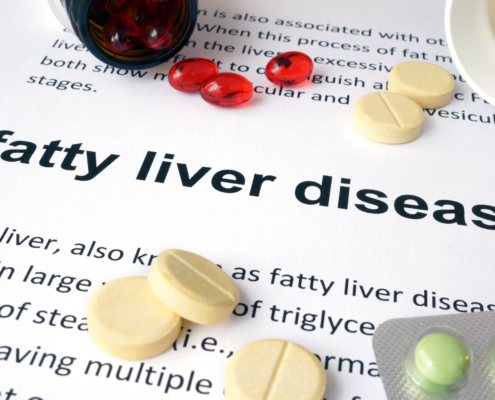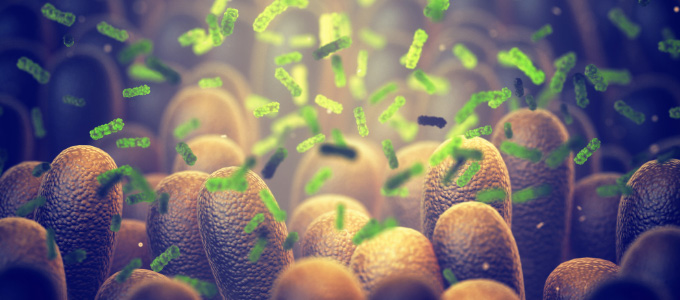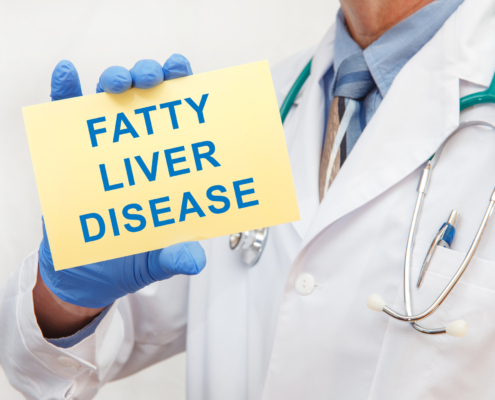Prevent, Reverse, or Manage metabolic dysfunction-associated fatty liver disease (MASLD), previously known as non-alcoholic fatty liver disease (NAFLD), by working with a Registered Dietitian Nutritionist in Long Island
What is Fatty Liver disease (now known as metabolic dysfunction-associated steatotic liver disease)?
The liver plays a vital role in breaking down food, storing energy, and eliminating waste products. Metabolic Associated Steatotic Liver Disease (MASLD), formerly known as Non-Alcoholic Fatty Liver Disease (NAFLD), is a chronic condition caused by an accumulation of fat in the liver. This buildup can impair the liver’s ability to function effectively.
MASLD is linked to factors such as excess body weight, high blood sugar, elevated cholesterol levels, and high blood pressure. Risk factors include Type 2 diabetes or insulin resistance, prediabetes, abnormal triglyceride and cholesterol levels, obesity or being overweight, and heredity/genetic predisposition.



